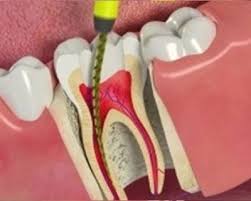Root Canal Treatment in Noida may be your last hope in saving a severely infected or damaged tooth, with this procedure consisting of opening and cleaning out infected tooth roots before filling them with biocompatible material like gutta-percha and adhesive cement to seal off their root canals and prevent further infection or damage to them.
Felix Hospital provides advanced root canal treatment at a competitive price, making Felix the optimal solution.
Cost
Root canal treatment is a dental procedure which removes infected or damaged pulp from inside a tooth, which includes nerves and blood vessels. Root canals may provide an alternative to extraction as it preserves natural teeth while also preventing further spreading of infection to neighboring teeth and tissues.
An endodontist, or root canal specialist, performs the procedure. These specialists possess three years of additional training specifically on root canal therapy to make the experience less painful for their patients.
Root canal treatments, when taken care of properly, can last a lifetime. After receiving the procedure, however, teeth may feel sensitive for some time afterward; to manage this sensitivity more comfortably afterward use soft food or apply cold compress. Also visit your dentist regularly as regular check-ups will prevent reinfection – making regular dental checkups essential to maintaining healthful and bright smiles!
Symptoms
Root canal treatment may become necessary if an infection or inflammation develops in the pulp tissue – comprising blood vessels and nerves – due to severe tooth decay, cracked or chipped teeth, repeated dental treatments on one tooth, trauma, etc. If left untreated, this infection could spread into nearby tissues resulting in dental abscesses – making any subsequent procedures even more painful than before.
An anesthetised area is first administered before drilling a hole to remove infected tissue from a tooth, cleaning and disinfecting it, sealing with gutta percha and covering with a crown to protect it further from further contamination. After surgery, patients may experience mild sensitivity or tenderness that can be alleviated with over-the-counter pain relievers or prescription medication; furthermore it’s important to follow all post-treatment care instructions provided by their dentists.
Procedure
Root Canal Treatment or RCT is a dental procedure used to save and preserve an infected or decaying tooth, relieving pain while eliminating infection from its roots, as well as stopping bacteria from spreading further, potentially spreading infection to healthy neighboring teeth or jaw bones.
An experienced dentist uses local anesthesia to numb the area surrounding an infected tooth before drilling a hole on top of it to reach its pulp. Once reached, any infected tissue is extracted before cleaning and disinfecting the entire tooth before filling its hole with gutta percha material and capping it off with a crown to protect from future infection and damage.
After receiving root canal treatment, patients should consume soft foods and avoid hot or cold food for several days to allow their tooth to heal properly. They should also schedule follow-up appointments to ensure it has completed healing correctly – historically this process could be extremely painful and time consuming – however modern anesthetics have made the procedure far less invasive and time consuming.
Recovery
Root canal treatment may be required if a tooth’s pulp tissue becomes inflamed, infected, or damaged. The pulp contains nerves and blood vessels which may become irritated due to deep decay, repeated dental procedures on one tooth, large fillings, cracks or chips in teeth or trauma to the face.
After receiving root canal therapy, your tooth may feel sensitive or tender for several days after treatment. Your dentist may provide pain medication or suggest over-the-counter solutions to help manage discomfort, and you should avoid chewing on the affected tooth until final restoration has taken place.
Once your procedure is over, your dentist will place a crown or other restorative material to prevent reinfection and protect the structural integrity of the treated tooth. This final restoration will restore its appearance while helping you eat and speak normally; additionally it protects the jawbone from natural processes known as resorption that occur after having teeth extracted.


